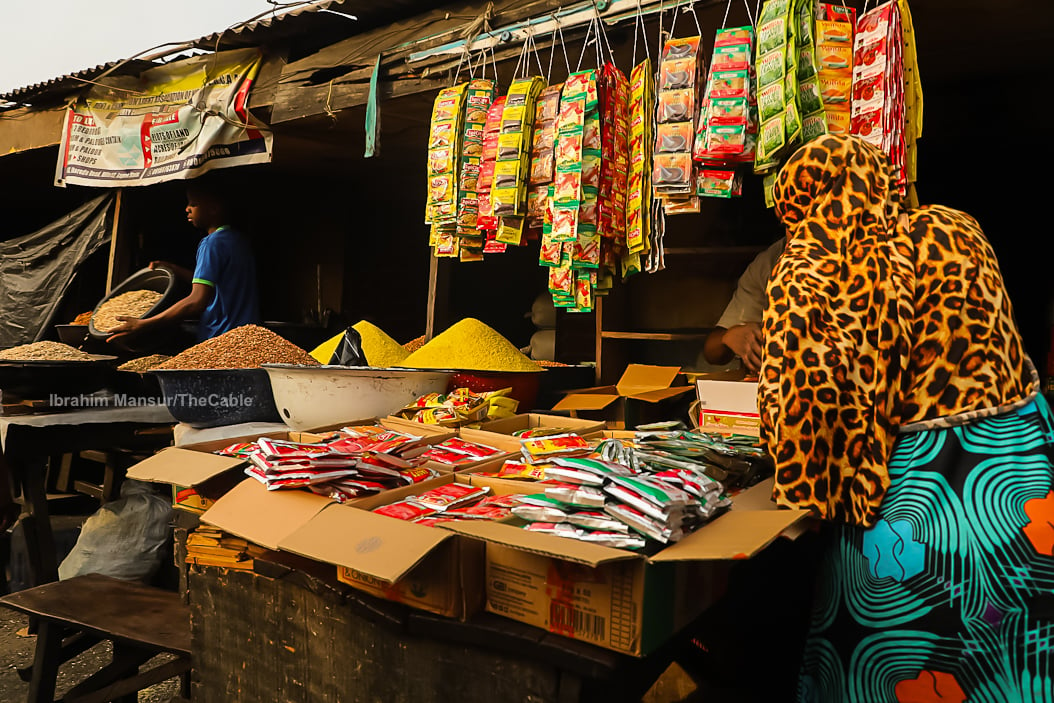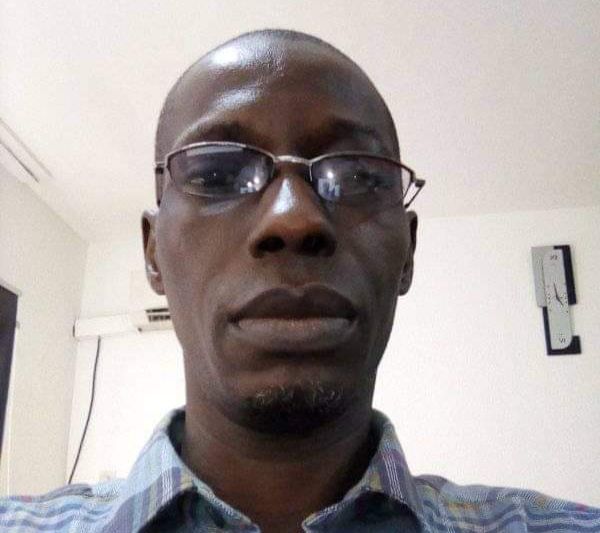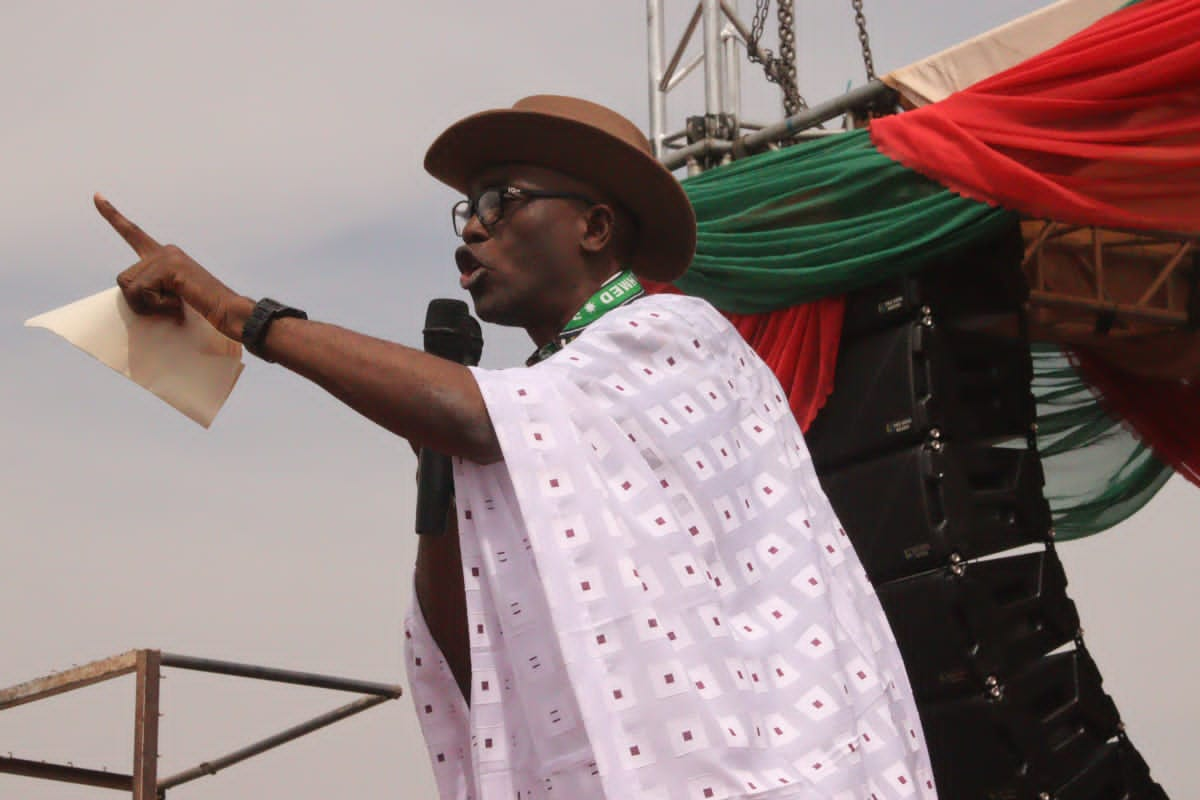When a king dies, another is crowned. When Ibadan mourns today, the ancient city celebrates that same day.
While Ali-Iwo, the palace of Oba Olalekan Balogun, the 42nd Olubadan of Ibadan, is in mourning, there is merry and celebration at the Alalubosa residence of Owolabi Olakulehin, the man who is expected to succeed Balogun as Olubadan.
Balogun died on Thursday at the age of 81. His demise comes two years after he ascended the Olubadan throne, having succeeded Saliu Adetunji.
The ascension to the throne of Olubadan is templated, and as such, a long line of Olubadans-in-waiting is established.
Advertisement
Designed to be in turns between the civil and military lines, the civil line of succession produced Olalekan Balogun. As the throne shifts to the military line, Olakulehin, the current balogun of Ibadanland, is next.
WHO IS OWOLABI OLAKULEHIN?
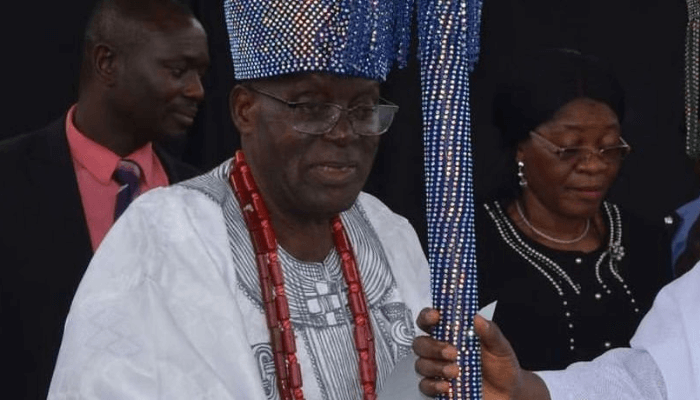
Olakulehin, 84, was born into the Okugbaja family in the Ita Baale area of Ibadan. Like his predecessor, he is a native of Ibadan north-east LGA of the state.
Advertisement
He is a retired soldier who served in the Nigerian Army.
In 1992, during the third republic, he contested and was elected into the federal house of representatives under the Social Democratic Party (SDP).
His son, Sunbo Owolabi, served as a commissioner for water resources under the administration of the late Abiola Ajimobi, former governor of Oyo state.
Typically, the ascension to the Olubadan throne is predictable. However, that of Olakulehin comes with some controversy.
Advertisement
In Yorubaland, a king cannot be crowned twice — but Olakulehin may be the first to break that jinx. The reservations expressed about his ascension to the throne stem from a series of events from Ajimobi’s tenure.
THE OBASHIP SAGA
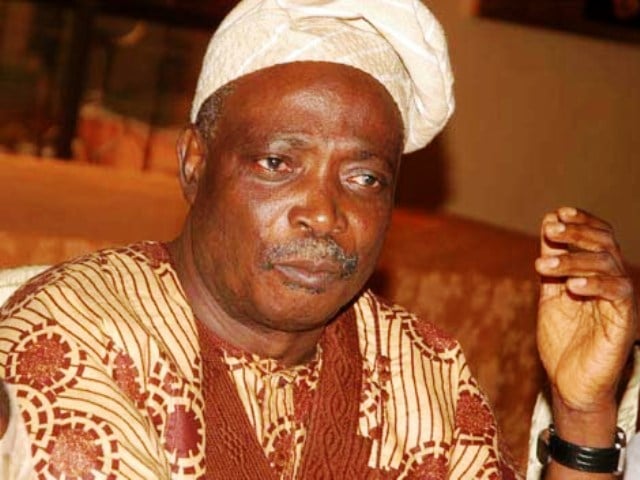
In 2017, Ajimobi conferred the title of obaship on some high chiefs and baales, giving them the right to wear beaded crowns and coronets and be addressed as “his royal majesty”.
The action was challenged by Rashidi Ladoja, the Otun Olubadan of Ibadanland and former governor of Oyo, who argued that it violated the 1957 Ibadan chieftaincy declaration.
Advertisement
The conferment was nullified by J. Aiki, a high court judge, for being in contravention of both the chiefs law and the Ibadan chieftaincy customary law.
Ajimobi, however, challenged the high court’s ruling.
Advertisement
The appellate court set aside Aiki’s decision on technical grounds and ordered a retrial of the case.
Upon Seyi Makinde’s assumption of office as governor, it was resolved that the matter be settled amicably. It was settled through the instrumentality of a “terms of settlement”, which became the judgement of the court.
Advertisement
The terms of the settlement stated that things should return to the status quo.
Dissatisfied with the consent judgement, the high chiefs instituted two separate suits to set it aside.
Advertisement
The suit generated controversies that contributed to the delay in the appointment of the next Olubadan.
In a bid for Balogun, the next in line, to be appointed, Makinde asked the kingmakers to discontinue the case.
The plaintiffs, through their lawyer, Kunle Sobaloju, wrote a letter to withdraw their case.
Dismissing the case, the chief judge said the withdrawal of the suit by the high chiefs indicated the termination of all litigation on the case.
The chief judge further said the Olubadan Chieftaincy Declaration of 1957 remained valid and any contrary declaration should be disregarded.
The case was laid to rest and Balogun was crowned Olubadan.
Ladoja said then that all issues had been resolved and that there was no controversy over Balogun becoming Olubadan.
THE MAKINDE ANGLE
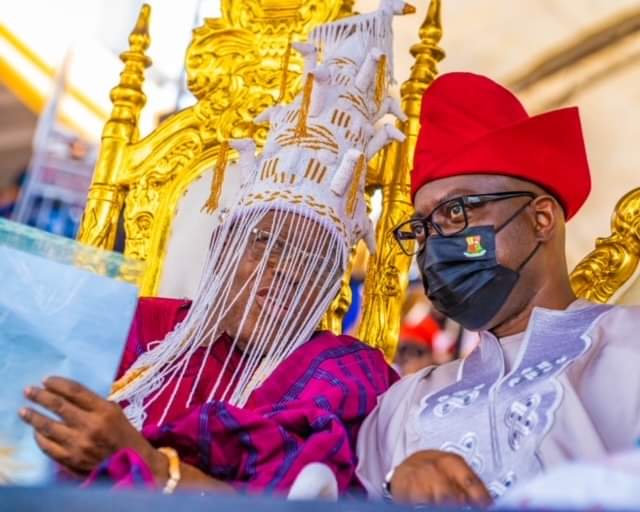
In June 2023, Makinde signed the chieftaincy amendment bill into law following its passage by the state house of assembly.
He subsequently approved the promotion of 11 Ibadan high chiefs to be crowned obas.
Under the amended law, the 11 high chiefs, who form the Olubadan-in-council, were recognised as the traditional heads of the 11 LGAs in Ibadanland.
Ladoja, one of the 11 chiefs, rejected the obaship and was absent at the coronation ceremony.
He subsequently filed a suit before the state high court in Ibadan in July 2023, challenging the elevation of his high chief colleagues to obas.
The suit listed Makinde, the elevated obas, and the state attorney-general as defendants.
Among other prayers, Ladoja asked for a declaration that the newly crowned obas cannot again aspire for the throne of Olubadan, as they are no longer chiefs.
In October 2023, when the case came up for hearing, M.O Adegbola, the presiding judge, declined to hear the suit and ordered the return of the case file to the chief justice for reassignment.
Adegbola said, “My closeness to the claimant; second and fourth defendants would impugn on my credibility and that of the judiciary…the best in the circumstance is to step down in handing the matter.”
There is no public record of whether Ladoja has withdrawn the case or not.
IMPLICATIONS FOR OLAKULEHIN
Should Ladoja decide to pursue the case and the court rule in his favour, that possibly means Olakulehin would have to step down from the Olubadan throne if he had been crowned.
The 11 elevated obas would also have to revert to their high chief statuses.
Ladoja was spotted at the residence of Olakulehin on Friday morning, where he had reportedly gone to pay his homage to the incoming Olubadan.
This could mean that he accepts the ascension of Olakulehin, but would he withdraw his case?
THE LONG ROAD TO OLUBADAN THRONE
By default, every male child in Ibadan is a potential Olubadan. To become one, a prospect, starting from the mogaji step (family head), has to ascend through 45 stages, and by the time they become Olubadan council-in-chiefs, they are already in their seventies. The ascension from one stage to another is informed by a vacuum following the death of a person up the ladder.
To shorten the length, the Oyo state government, in a white paper on the Review of the Existing Olubadan of Ibadanland Chieftaincy Declaration, published in a government gazette in August 2017, reduced the length of the ladder to 11 steps on the Otun Olubadan (civilian) line and 12 steps on the Balogun (military) line.



